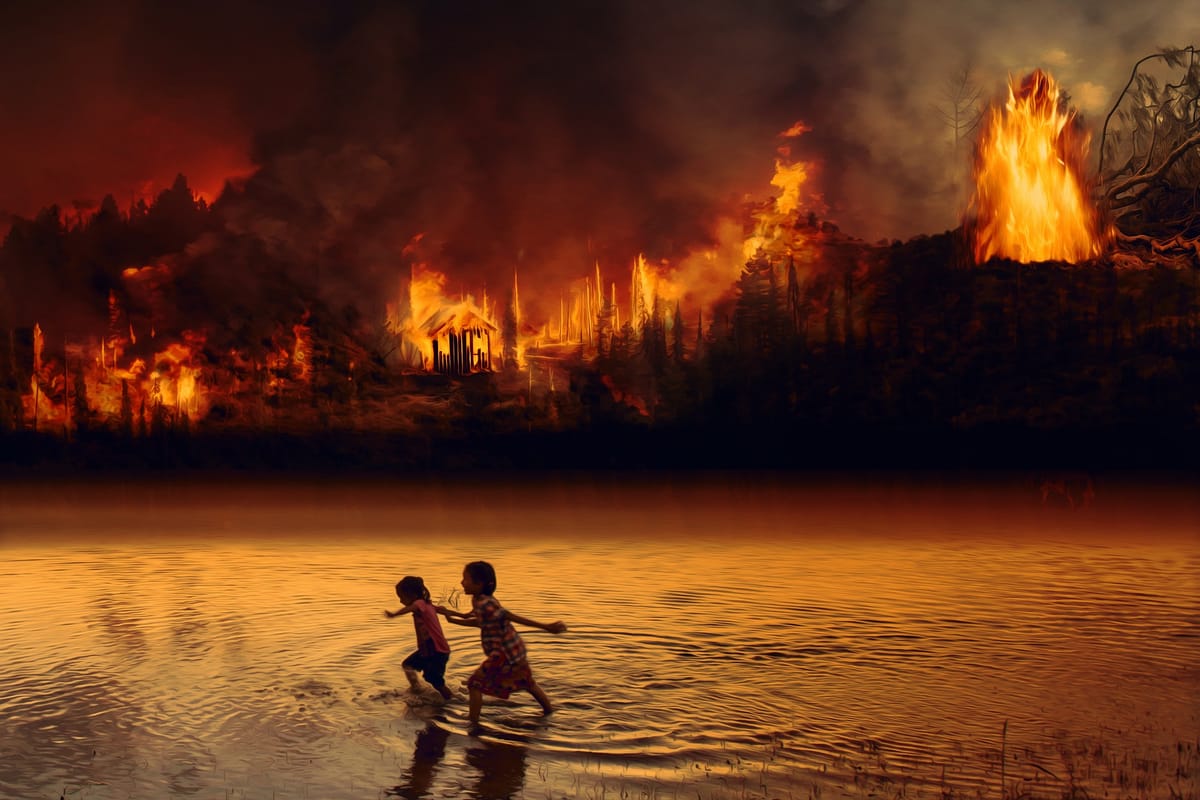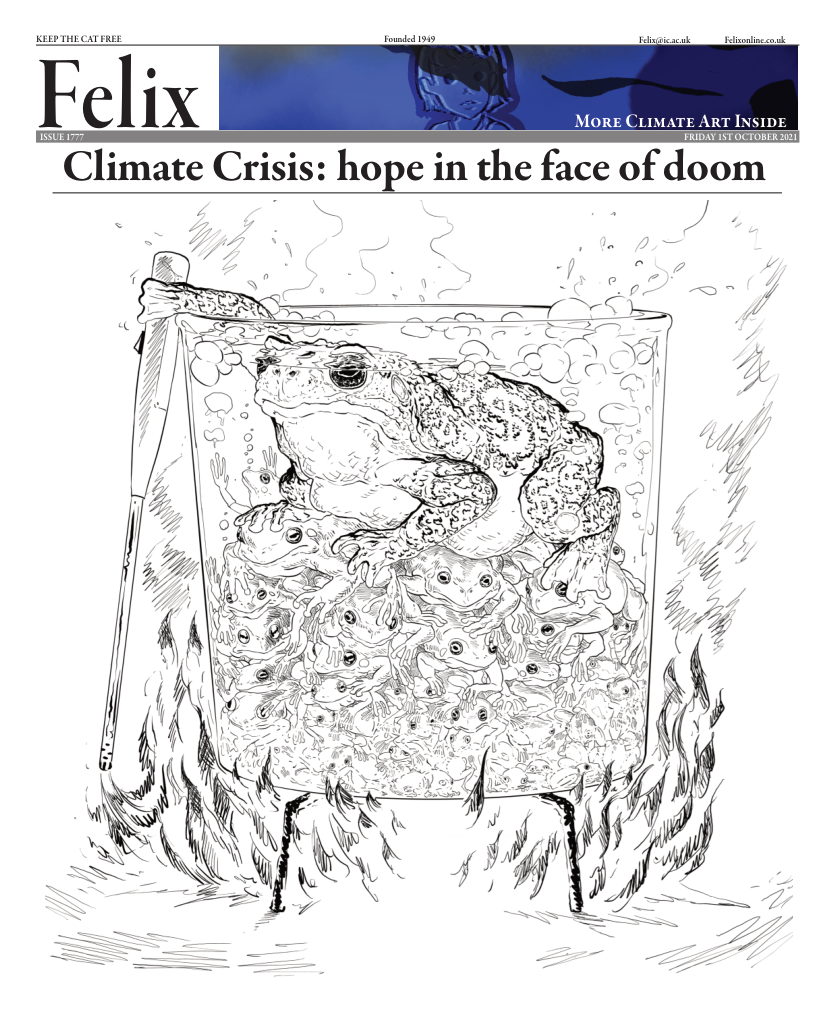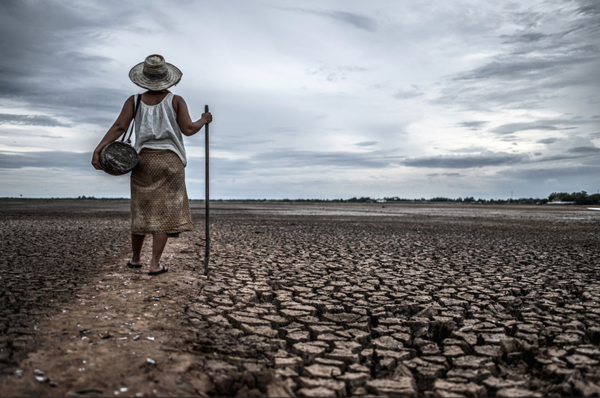Climate-change 101: What’s the deal with COP26 and the recent IPCC report?
A one-stop coverage of COP26, why it matters, and how the IPCC report comes into play

If you’ve vaguely been following any climate-change or sustainability-related outlets, you’re bound to have come across COP26 (formally known as the Conference of Parties 26). Even if you haven’t heard of it yet, it’ll become an increasingly common topic of conversation over the next few weeks.
The COP26 is the official United Nations Climate Change Conference, hosted annually since 1995 (except for 2020 due to the COVID19 pandemic). It is one of the most influential summits on climate change, and this year it will be held from October 31st to November 12th in Glasgow. The parties involved include 200+ countries, NGOs and faith groups who were a part of the United Nations Framework Convention on Climate Change ( U N F C C C ), set up at the Rio Earth Summit in 1992. Since COP’s establishment, crucial agreements have been made to limit climate change, including the 1997 Kyoto Protocol and the 2016 Paris Agreement. Perhaps more well known, the latter was an agreement made at the COP21, involving all signatory countries to reduce greenhouse gas (GHG) emissions through ‘Nationally Determined Contributions (NDCs)’ that will be reviewed every five years. In essence, everyone is responsible for setting and achieving their own targets for limiting global warming to 1.5 degrees. So far, it’s clear that some nations are a lot more ambitious than others.
The conversations between the UNFCCC parties are guided by the research findings from the Intergovernmental Panel on Climate change (IPCC), a group of climate-change experts who publish an assessment report (AR) every five years, based on ratified scientific evidence. These reports are intended to be objective, informative assessments that can guide policy but are not prescriptive. Three working groups put the information together: Working Group I covers The Physical Science Basis, including evidentiary support on the latest climate science knowledge, Working Group II covers climate change impacts, adaptations and vulnerabilities, and Working Group III offers suggestions to mitigate climate change. The most recent report, IPCC AR6, came out in August this year. The findings in AR6 and the context of the pandemic is why COP 26 is garnering so much attention. Not only are we far off-track from accomplishing the goal of limiting warming to 1.5 degrees as laid out in the Paris Agreement, but AR6 made it unequivocally clear that human-induced GHG emissions are responsible for global warming and its related climate tragedies. More bleak is the conclusion that we will exceed global warming of not just 1.5 degrees, but 2 degrees within this century unless GHG emissions are significantly reduced. As David Miliband, CEO of the International Rescue Committee, stated, “The window of opportunity to avoid dangerous climate change is closing more quickly than previously thought”.
Moreover, the economic decline brought on by the COVID-19 pandemic, whilst tragic, is also an opportunity for society to build back stronger – perhaps not even building back but re-building an entirely new way of operating society based on principles of sustainability and justice for all. Thus, the outcomes of COP26 will shape not just the next decade but also the future of our species and planet.
COP26 is split into three sections, with the first being the main negotiations involving world leaders and experts in the field. There will also be observers, including NGOs, specialised UN agencies (e.g. the WHO) and registered press organisations. The second part involves exhibitions and fringe events for delegates and, finally, the third part is made up of talks and events for the public. Some key topics to be discussed include carbon market mechanisms, funding for loss and damage, climate finance, nature-based solutions, and timeframes for NDCs. Felix’s environmental section will be covering each of these topics in the next few weeks leading up to the conference.
It’s time for governments and societies to set more ambitious targets and, more importantly, take urgent collaborative action to achieve them – one aligned to put our world at a net-zero emission status by 2050. Of course, there are plenty of ways to do this, including phasing out the use of coal, cutting back on deforestation, greater adoption of electric vehicles, investing in renewable energy, and providing the necessary aid for less economically developed countries. But like anything, knowing is not the same as doing. As students, we can do our part by educating ourselves, then making individual choices to limit environmental damage. To learn more about the COP26 and the IPCC report, visit ukcop26.org or ipcc.ch and follow any of their social media outlets. You can also find an excellent summary of the IPCC report’s key findings on the ‘Headline Statements from the Summary for Policymakers’ document available on the IPCC home page. Most importantly, start taking action – get involved in student organisations, join climate change campaigns, re-examine your lifestyle – there are a million ways to help, and every decision counts.









